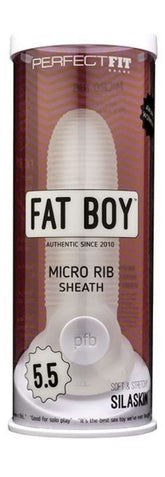-
Pjur Med Clean Intimate Area Cleaner Spray 100 mlPjur Med Clean Intimate Area Cleaner Spray – 100ml The Pjur Med Clean Intimate Area Cleaner Spray – 100ml serves as a gentle hygiene solution for keeping intimate zones fresh and clean without harsh effects. It targets skin in sensitive spots, along with surfaces...
- $19.99
$24.99- $19.99
- Unit price
- per
-
Kama Sutra Honey Dust Moisture Wicking Body Powder 170 gKama Sutra Honey Dust Moisture Wicking Body Powder 170 g Kama Sutra Honey Dust transforms your skin into a soft, kissable canvas with a fine talc-free powder that absorbs moisture while leaving behind a delicate scent. This 170-gram jar of bath intimate fragrances delivers...
- $49.99
$59.99- $49.99
- Unit price
- per
-
Sliquid Balance Splash Intimate Gentle Feminine Wash 8.5ozSliquid Balance Splash Intimate Gentle Feminine Wash Sliquid Balance Splash Intimate Gentle Feminine Wash is a standout in the sexual hygiene category, offering a pH-balanced, gentle cleanse for daily intimate care. This 8.5 oz liquid wash, available in unscented, honeydew cucumber, grapefruit thyme, or...
- $34.99
$44.99- $34.99
- Unit price
- per
-
Earthly Body Hemp Seed REFRESH Intimate Spray 60 mlEarthly Body Hemp Seed REFRESH Intimate Spray Earthly Body Hemp Seed REFRESH Intimate Spray transforms intimate hygiene into a confidence-boosting ritual that fits seamlessly into your active lifestyle. This expertly formulated 60ml spray delivers instant freshness using natural botanical ingredients that work in harmony...
- $19.99
$24.99- $19.99
- Unit price
- per
-
Earthly Body Hemp Seed GUARD Anti-Chafing Cream 60 mlEarthly Body Hemp Seed GUARD Anti-Chafing Cream Earthly Body Hemp Seed GUARD Anti-Chafing Cream revolutionizes personal comfort with a breakthrough formula that prevents friction-related skin irritation before it starts. This talc-free protection cream combines the nourishing power of hemp seed oil with advanced moisture-control...
- $14.99
$19.99- $14.99
- Unit price
- per
-
Skyn Natural Harmony Vaginal Moisturiser 80mlSkyn Natural Harmony Vaginal Moisturiser: Gentle Hydration for Intimate Wellness Skyn Natural Harmony Vaginal Moisturiser offers women a premium solution for intimate dryness and discomfort. Formulated with your body's natural chemistry in mind, this sophisticated 80ml moisturiser provides lasting hydration while maintaining optimal vaginal...
- $19.99
$24.99- $19.99
- Unit price
- per
-
Doc Johnson Intimate Enhancements INTENSIFY Pleasure GelDoc Johnson Intimate Enhancements INTENSIFY Pleasure Gel: Curated Sensations for Every Desire Doc Johnson Intimate Enhancements INTENSIFY Pleasure Gel delivers a personalized approach to intimate exploration with four specialized formulations designed to transform your sensory experiences. This comprehensive collection empowers you to customize every...
- $24.99
$29.99- $24.99
- Unit price
- per
-
Luvloob Keep Me Clean Foam Cleanser 100mlLuvloob Keep Me Clean Foam Cleaner: The Essential Companion for Your Intimate Toys Introducing the Luvloob Keep Me Clean Foam Cleanser, your 100 mL bottle of peace of mind. This isn't just another cleaning product; it's your ticket to worry-free pleasure and extended life...
- $19.99
$24.99- $19.99
- Unit price
- per
Intimate Deodorants FAQ
Apply to external skin only: upper inner thighs where legs meet body, pubic mound, lower abdomen. Never apply on vulvar lips or inside the vagina. Think of areas where underwear leg bands sit.
Not recommended. Underarm formulas often contain stronger ingredients and fragrances that can irritate sensitive intimate skin. Use products specifically designed for intimate use with gentler formulas.
No, deodorants are for external skin only. Vaginal odor comes from inside and often signals infection or imbalance needing medical attention. Deodorants cannot treat internal issues.
Most people apply once daily after showering. Use as needed based on your sweating patterns, activity level, and comfort preferences. It's not medically necessary, just a personal comfort choice.
Common causes: applying to wet skin, using immediately after shaving/waxing, or sensitivity to specific ingredients (often baking soda or alcohol). Wait 24 hours post-hair-removal and ensure skin is completely dry before applying.
Yes, you can apply to external skin. Avoid getting product on menstrual pads or tampons. Remember deodorant addresses skin odor, not menstrual blood scent. Change period products regularly for freshness.
Powder formulas may leave white residue on dark fabrics. Creams and sprays typically don't stain once dried completely. Allow 1–2 minutes drying time before dressing to minimize transfer.
Not necessarily. Daily washing with gentle products and clean underwear may be sufficient. Use deodorant if you want extra odor control, especially during exercise, hot weather, or hormonal changes.
Anyone can use intimate deodorant for external groin area odor control. Products marketed as "feminine" work fine for all genders since they target the same external skin areas and odor causes.
Intimate deodorants provide subtle freshness, not strong fragrance. Do not spray regular perfume on intimate areas—alcohol and chemicals irritate sensitive skin. If you want light scent, choose products specifically formulated for intimate use.
- $19.99
- $19.99
- Unit price
- per
- $19.99
- $19.99
- Unit price
- per
- $19.99
- $19.99
- Unit price
- per
- $19.99
- $19.99
- Unit price
- per
- $19.99
- $19.99
- Unit price
- per
- $19.99
- $19.99
- Unit price
- per
- $19.99
- $19.99
- Unit price
- per
- $19.99
- $19.99
- Unit price
- per
- $19.99
- $19.99
- Unit price
- per
- $19.99
- $19.99
- Unit price
- per
- Choosing a selection results in a full page refresh.






























